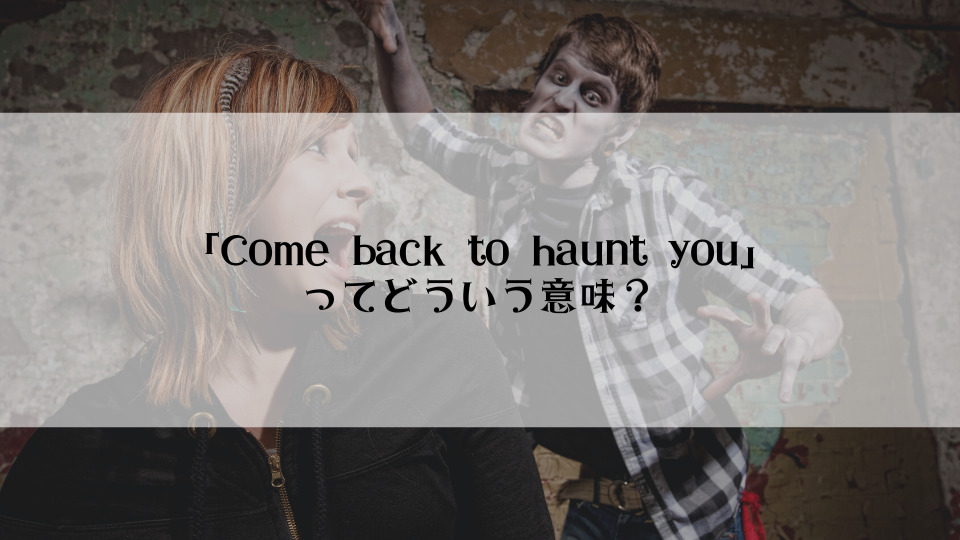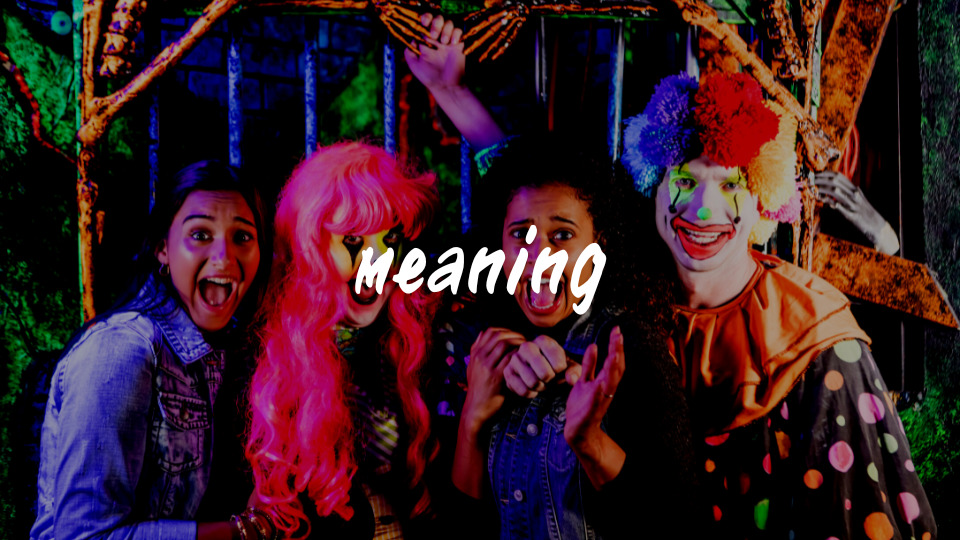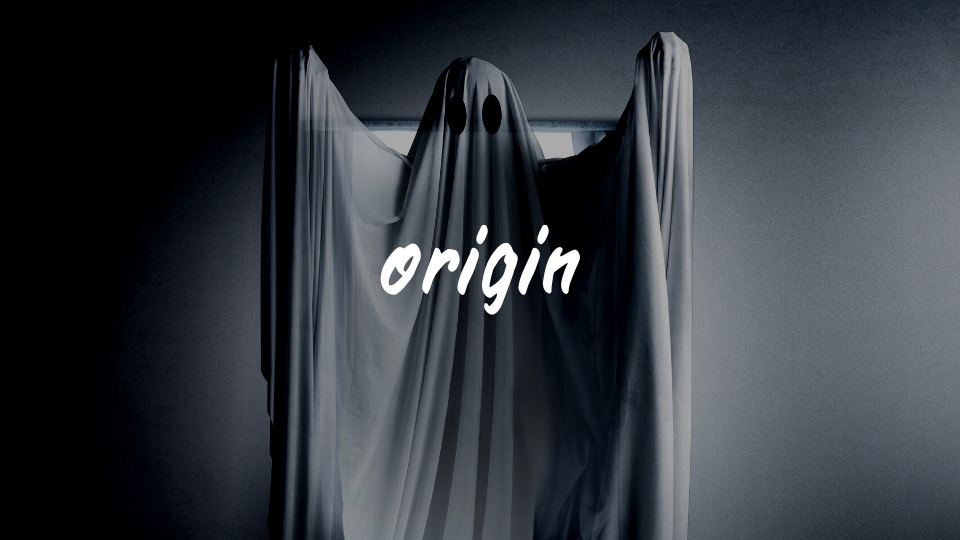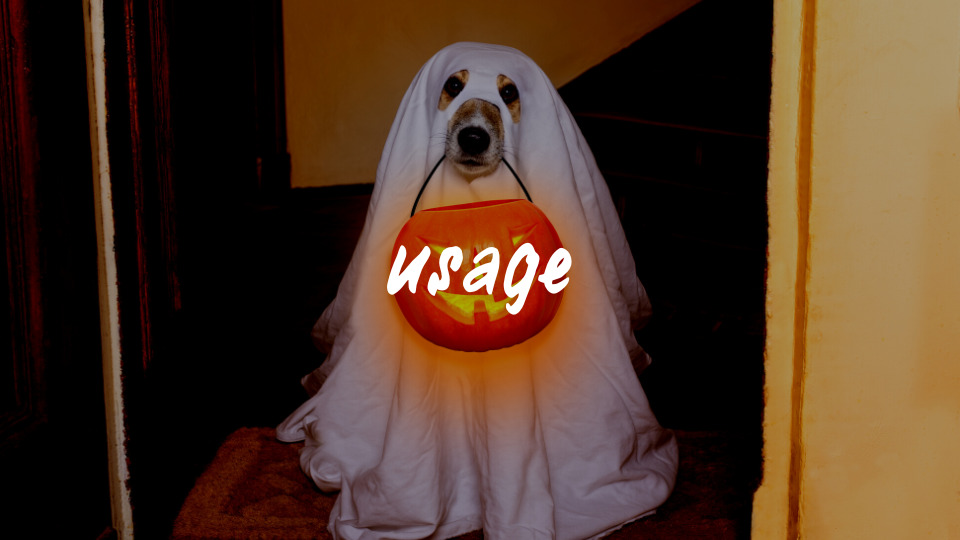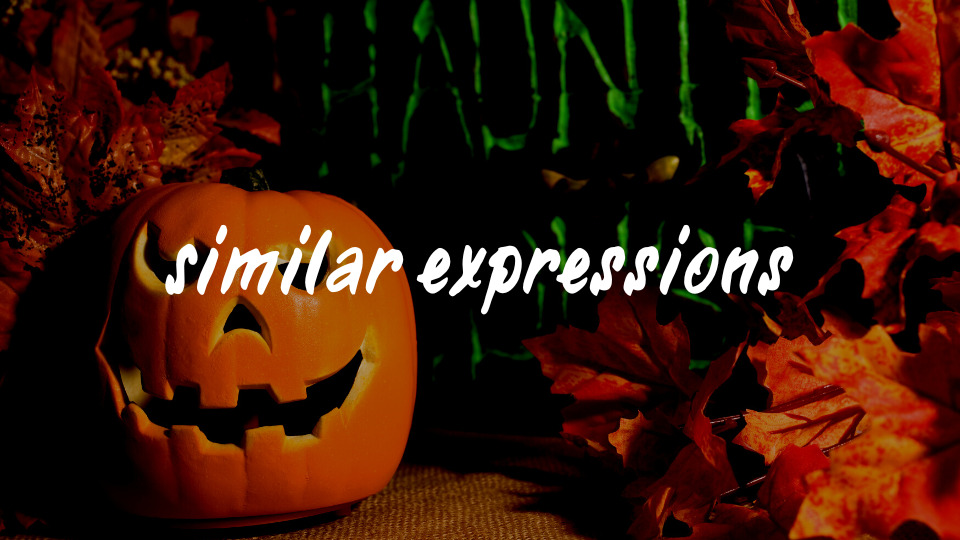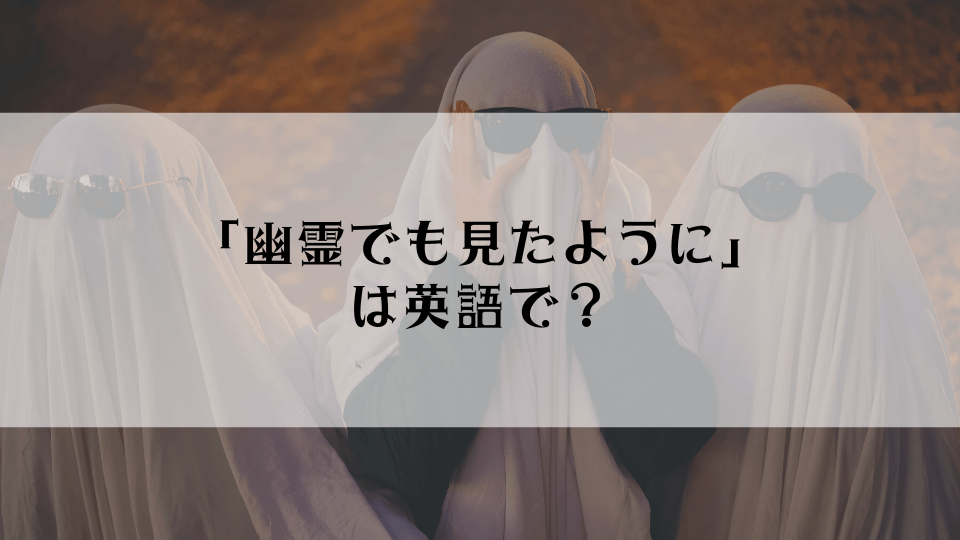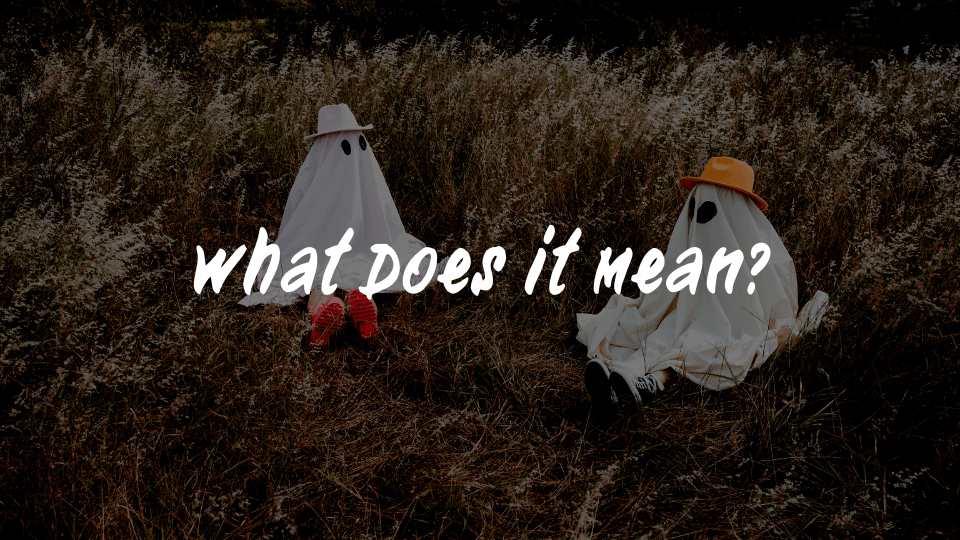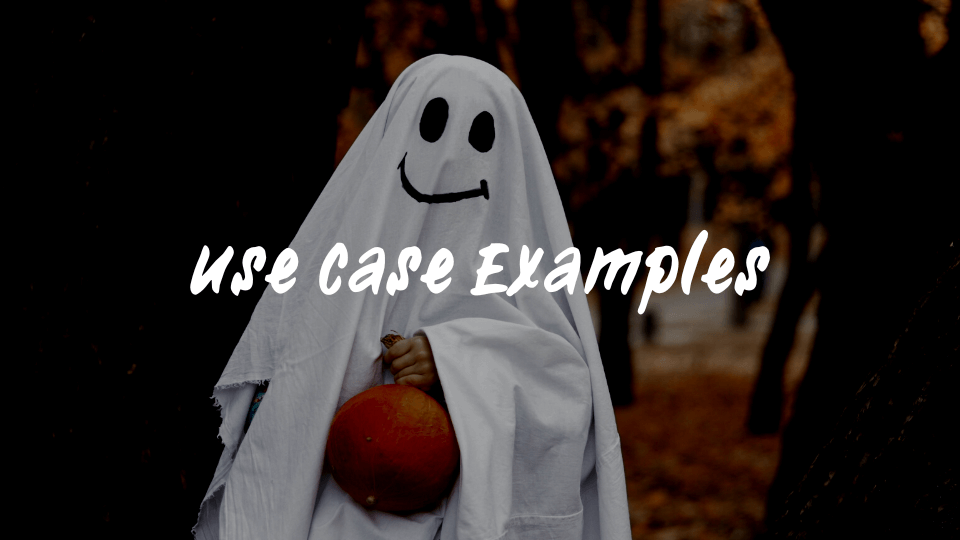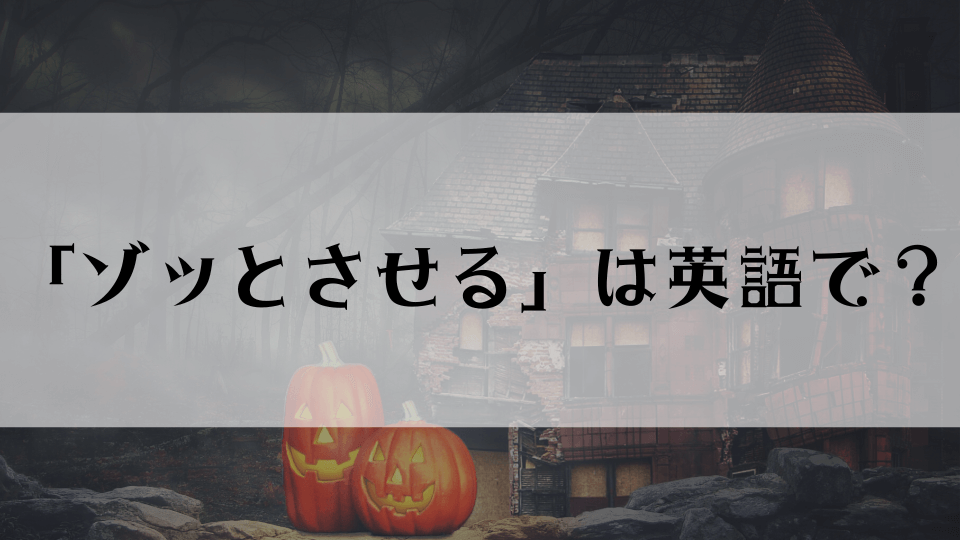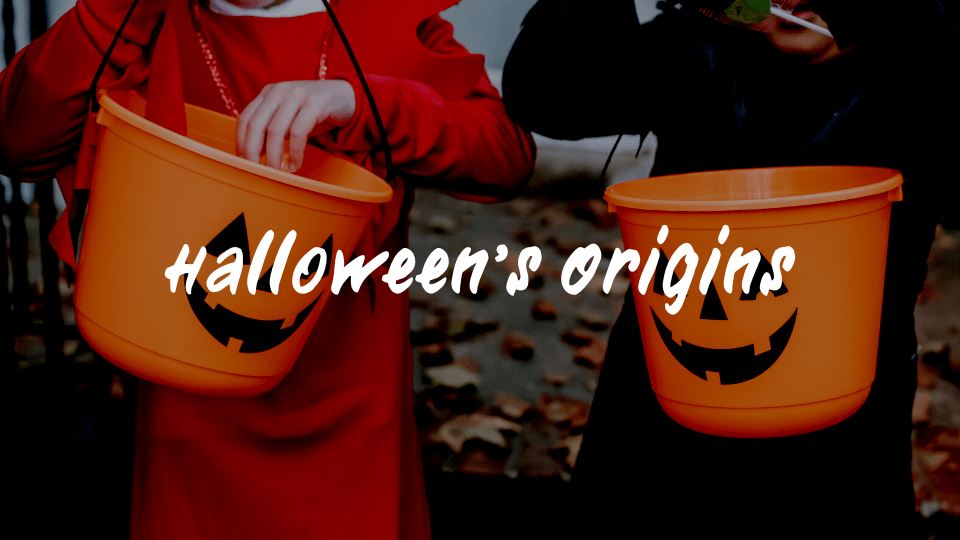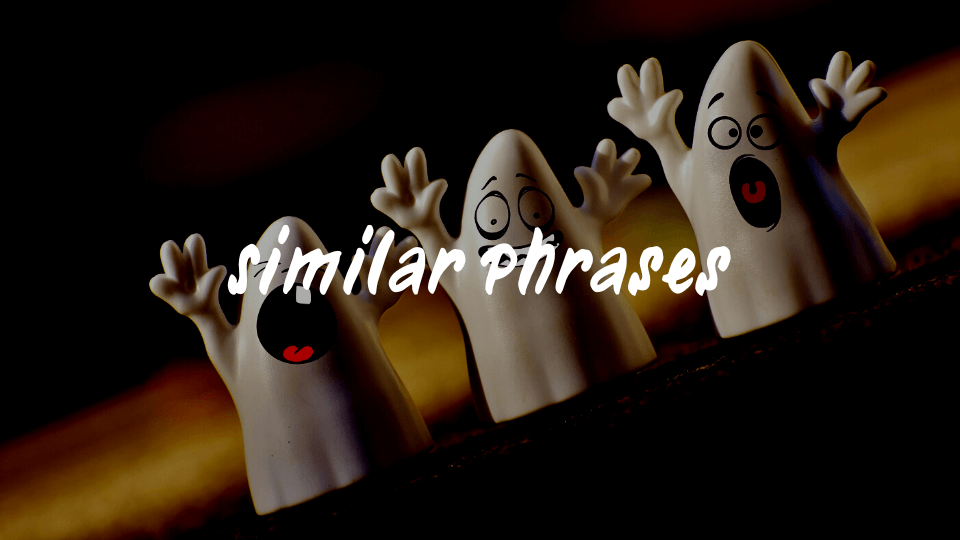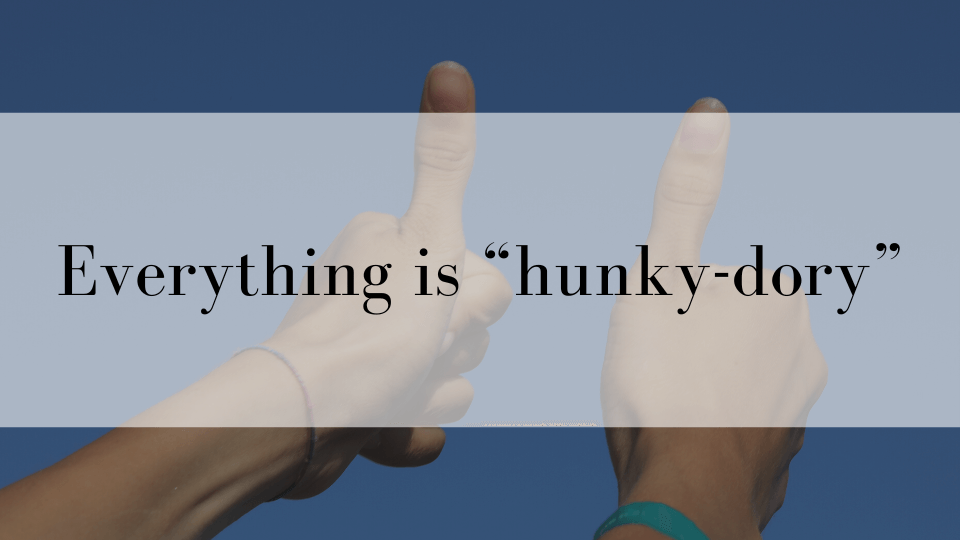【講師ヘンリー】
こんにちは。ブログにお立ち寄りいただきありがとうございます。
10月は魂や幽霊、私たちを悩ませる不気味なものなどを考える時期ですね。
この季節にふさわしく、このブログでは「Come back to haunt you」というイディオムの意味、成り立ち、そして使い方を見ていきたいと思います。
「Come back to haunt you」の意味
「Come back to haunt you」というイディオムは、過去にした行動、決断、または過ちが再浮上し、後に問題や後悔を引き起こす可能性があることを意味しています。
まるであなたの記憶につきまとう幽霊のように。
これは、過去の過ちや悪い決断が現在または将来に悪影響を及ぼす状況を表しています。
「Come back to haunt you」の成り立ち
このイディオムの起源は、特定の歴史的出来事や話に結びついているわけではありません。
代わりに、一般的な人間の経験である後悔や、過去の過ちや行動が人生に長期的な影響を及ぼすという考えに基づいています。
過去からの不気味な幽霊のように…
「Come back to haunt you」の使い方
このイディオムは、職場、家庭、社会的な状況など、さまざまな場面で使われ、誰かに現在の行動が将来悪い結果をもたらす可能性があることを警告したり、思い出させたりするために使われます。
[例文]
Be careful what you say about your boss; it might come back to haunt you in the future.
(上司について何を言うかには気をつけて。それが将来、あなたに災いとして戻ってくるかもしれません。)
Skipping classes now may seem fun, but it could come back to haunt you when you’re trying to graduate.
(今クラスをパスするのは楽しいかもしれませんが、卒業しようとしているときにそれがあなたを悩ます原因になるかもしれません。)
Investing in that risky business venture might come back to haunt you if it fails.
(そのリスクの高いビジネスベンチャーに投資することは、それが失敗した場合、あなたに災いとして戻ってくるかもしれません。)
「Come back to haunt you」に似た表現
「Come back to haunt you」と似ている表現はたくさんあります。
ここではその中の二つをご紹介します。
Reap what you sow
[意味]
自分でまいた種は自分で刈ることになる。(将来の結果は通常、現在の行動によって形作られる。)
[例文]
Tom cheated on his exams throughout high school, and now he’s failing all his college courses. He’s just reaping what he sowed.
(トムは高校時代、試験でずっとカンニングをしていたので、今では彼は大学の全てのコースで失敗しています。彼は今自分でまいた種を刈っているのです。)
Dig your own grave
[意味]
自分の墓穴を掘る。(自分に多くのトラブルを引き起こす、またはキャリア、関係、結婚などを終わらせる愚かなことをすること。)
[例文]
By refusing to apologize for his rude comments, John dug his own grave and lost many friends in the process.
(失礼なコメントに対する謝罪を拒否することで、ジョンは自分の墓穴を掘り、その過程で多くの友人を失いました。)
私が経験した怖いこと
怖い話といえば、私が最初に経験したハロウィンは、私が10歳頃の時に見たハロウィンの映画を通してでした。
当時、私の母国(ウガンダ)ではハロウィンは祝われておらず、その映画は私を恐怖に陥れました!
長い間、それが頭から離れませんでした。
私は、それが長い間私を悩ませ、ハロウィンを嫌いにさせたと思います。
近頃は、ハロウィンは私の国でも楽しい日となっています。
若者たちは面白い衣装を着て、ハロウィンのパーティーやパレードを楽しんでいます。
まとめ
幽霊、ゴブリン、そしてハロウィンに関連する生き物が毎年10月31日に「haunt (出没)」するように、過去に行われた悪い行動、過ち、または決定が、現在または将来、私たちに問題やトラブルを引き起こすかもしれません。
実践的な英語ならケンジントン英会話
ケンジントン英会話では、教科書には載っていない、生きた表現を身に付けられます。
福岡市内の教室やオンラインで、経験豊富でフレンドリーな講師と一緒に英語を学びませんか?
実践的な英語を学びたい方はケンジントン英会話の公式サイトをチェック!
[英語原文]
“Come back to haunt you”
Hello there, I’m glad you’ve stopped by.
It’s that time of the year when we think of spirits, ghosts and other spooky things that come to “haunt” us.
In the spirit of the season, we’ll be looking at the meaning, origin and usage of the idiom, “Come back to haunt you”.
Meaning
The idiom “come back to haunt you” means that an action, a decision or mistake you made in the past, can resurface and cause problems or regrets later on for you, just like a ghost or spirit haunting your memory.
It describes a situation where a mistake or a bad decision in the past has negative consequences in the present or future.
Origin
The origin of this idiom is not tied to a specific historical event or story. Instead, it draws upon the common human experience of regret and the idea that past mistakes or actions can have a lasting impact on one’s life. Like a spooky ghost from the past…
Usage
The idiom is used in various settings like workplace, family, social situations to warn or remind someone that their actions now may have bad consequences in the future.
Examples:
Be careful what you say about your boss; it might come back to haunt you in the future.
Skipping classes now may seem fun, but it could come back to haunt you when you’re trying to graduate.
Investing in that risky business venture might come back to haunt you if it fails.
Similar expressions
There are many expressions that may be similar to “come back to haunt you”
Here are two:
“Reap what you sow”: Future consequences are usually shaped by present actions.
Tom cheated on his exams throughout high school, and now he’s failing all his college courses. He’s just reaping what he sowed.
Dig your own grave: Doing something foolish which causes you a lot of trouble or even ends your career, relationship, marriage etc.
By refusing to apologize for his rude comments, John dug his own grave and lost many friends in the process.
Speaking of scary things from the past, my first “experience” of Halloween was through a Halloween movie that I watched when I was about 10 years old.
At that time, Halloween was not celebrated in my home country (Uganda). The movie terrified me! I couldn’t get it off my mind for a long time. I’d say, it haunted me for a long time and made me hate Halloween.
Nowadays, Halloween is a fun holiday in my country. Young people love to dress up in funny outfits and have Halloween parties and parades.
To sum up, just like ghosts, goblins, ghosts and other creatures associated with Halloween, come back to “haunt” us every year on October 31st, bad actions, mistakes or decisions made in the past may haunt or cause trouble for us in the present or future.
~*~*~*~ \ Follow me / ~*~*~*~
Instagram : @kensington_eikaiwa
Twitter : @Kensington_Eng
Facebook : @kensingtoneikaiwa
YouTube : KENSINGTON英会話
~*~*~*~*~*~*~*~*~*~*~*~*~*
◆お問い合わせはこちら
ケンジントン英会話:お問い合わせフォーム






















